Engine Coolant Thermostat Replacement 2.4L
Removal Procedure
- Drain the cooling system. Refer to Cooling System Draining and Filling .
- Remove the exhaust manifold heat shield bolts and shield.
- Remove the coolant inlet housing bolts through the exhaust manifold.
- Raise the vehicle. Refer to Lifting and Jacking the Vehicle in General Information.
- Remove the coolant inlet housing stud from the oil pan.
- Remove the tire and wheel. Refer to Tire and Wheel Removal and Installation in Tires and Wheels.
- Remove the right engine splash shield. Refer to Engine Splash Shield Replacement in Body Front End.
- Remove the transaxle-to-engine block brace bolts. Remove the brace. Refer to Transmission Replacement in Automatic Transmission 4T40-E/4T45-E.
- Remove the radiator outlet pipe. Refer to Radiator Outlet Pipe Replacement .
- Remove the thermostat.
- Clean the mating surfaces.
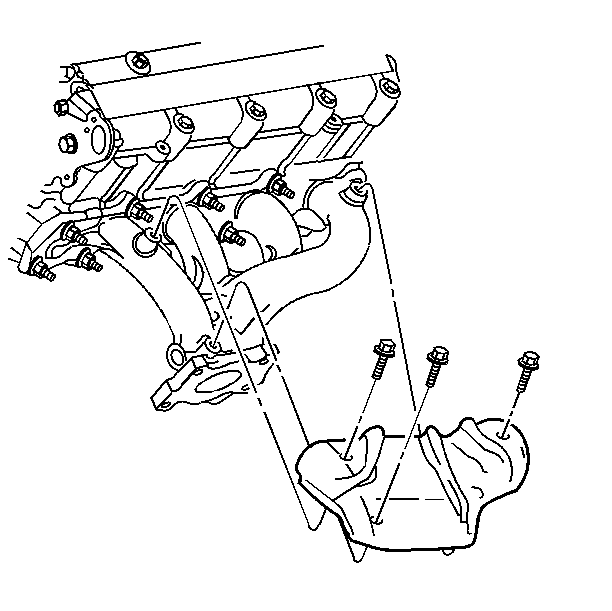
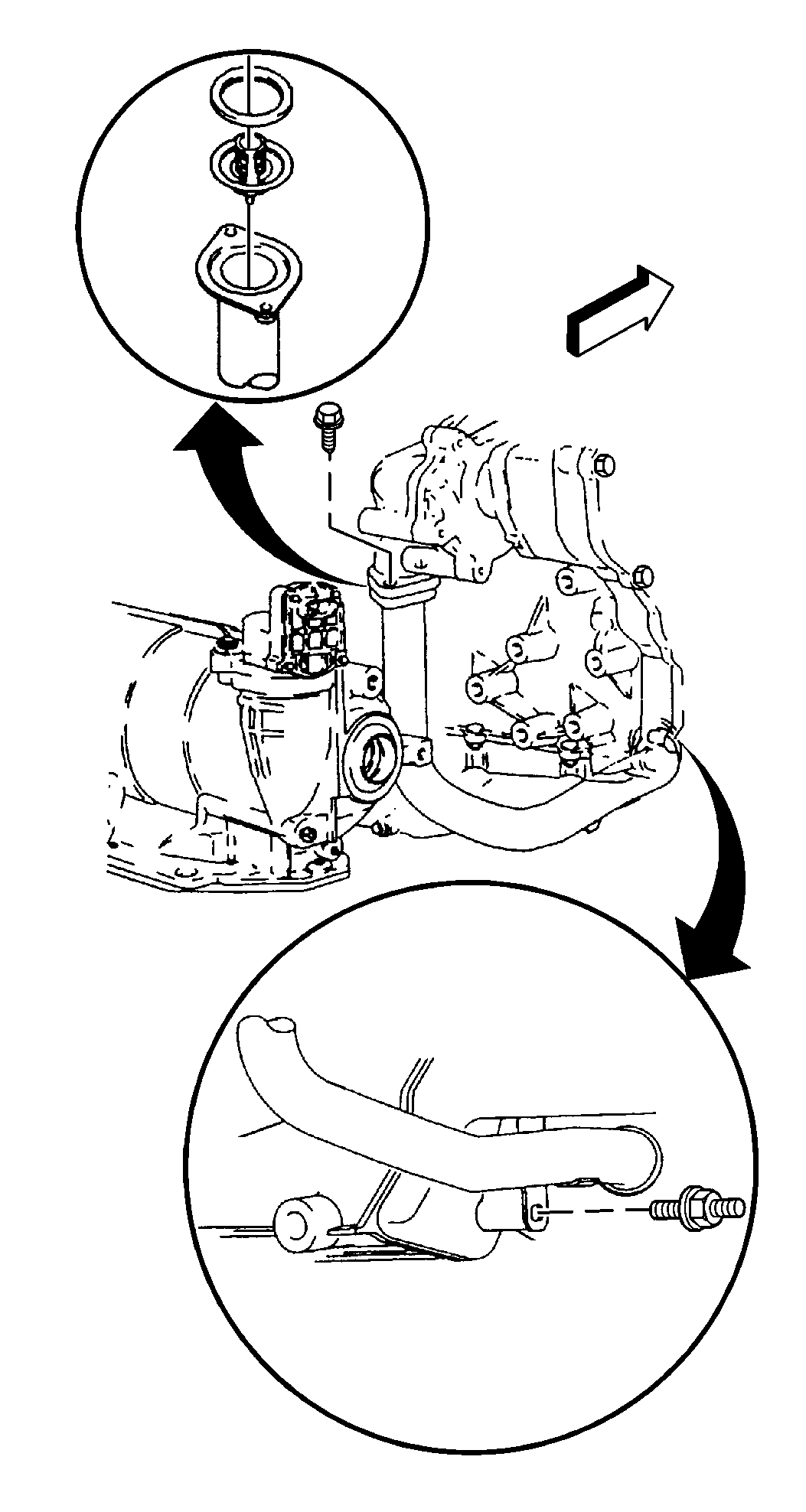
Installation Procedure
- Install the thermostat.
- Install the radiator outlet pipe. Refer to Radiator Outlet Pipe Replacement .
- Install the transaxle-to-engine block brace and secure with the bolts. Refer to Transmission Replacement in Automatic Transmission 4T40-E/4T45-E.
- Install the right engine splash shield. Refer to Engine Splash Shield Replacement in Body Front End.
- Install the tire and wheel. Refer to Tire and Wheel Removal and Installation in Tires and Wheels.
- Lower the vehicle.
- Install the exhaust manifold heat shield and bolt.
- Fill the cooling system. Refer to Cooling System Draining and Filling .
- Inspect the system for leaks.


Notice: Use the correct fastener in the correct location. Replacement fasteners must be the correct part number for that application. Fasteners requiring replacement or fasteners requiring the use of thread locking compound or sealant are identified in the service procedure. Do not use paints, lubricants, or corrosion inhibitors on fasteners or fastener joint surfaces unless specified. These coatings affect fastener torque and joint clamping force and may damage the fastener. Use the correct tightening sequence and specifications when installing fasteners in order to avoid damage to parts and systems.
Tighten
Tighten the exhaust manifold heat shield bolts to 14 N·m
(10 lb ft).
Engine Coolant Thermostat Replacement 2.2L
Removal Procedure
- Drain the cooling system. Refer to Cooling System Draining and Filling .
- Remove the lower radiator hose from thermostat outlet.
- Remove the thermostat outlet bolts and outlet.
- Remove the thermostat.
- Clean the mating surfaces of the radiator outlet and the radiator outlet pipe.
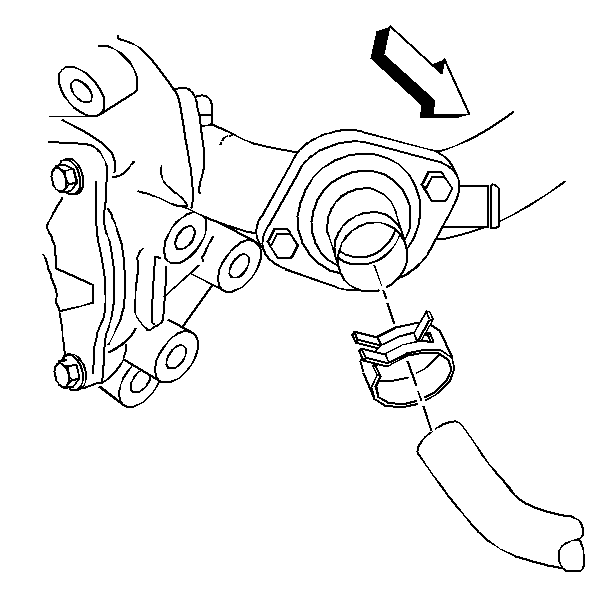
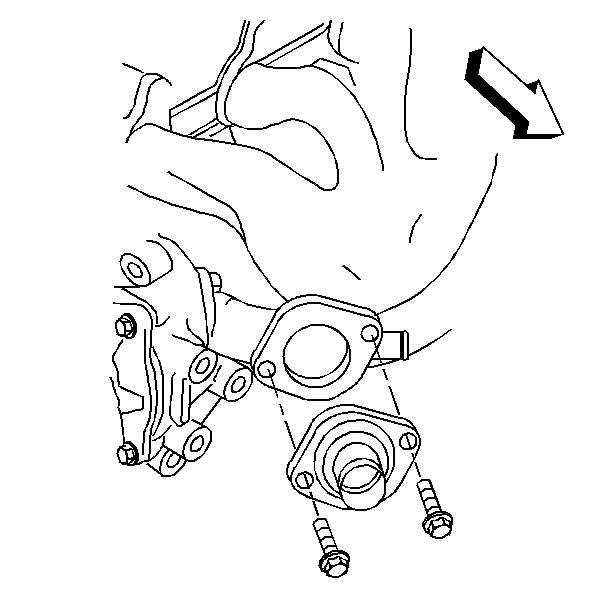
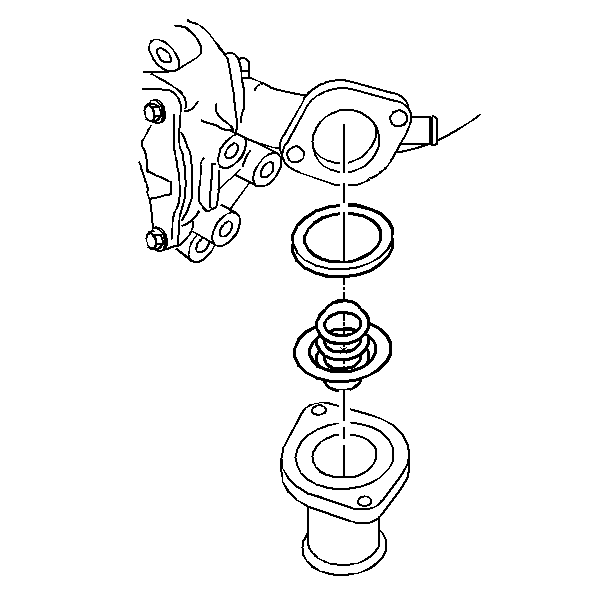
Installation Procedure
- Install the thermostat.
- Install the thermostat outlet and bolts.
- Install the coolant outlet attaching bolts.
- Install the lower radiator hose to thermostat outlet.
- Fill the cooling system. Refer to Cooling System Draining and Filling .
- Inspect for leaks.


Notice: Use the correct fastener in the correct location. Replacement fasteners must be the correct part number for that application. Fasteners requiring replacement or fasteners requiring the use of thread locking compound or sealant are identified in the service procedure. Do not use paints, lubricants, or corrosion inhibitors on fasteners or fastener joint surfaces unless specified. These coatings affect fastener torque and joint clamping force and may damage the fastener. Use the correct tightening sequence and specifications when installing fasteners in order to avoid damage to parts and systems.
Tighten
Tighten the thermostat outlet bolts to 14 N·m (10 lb ft).

